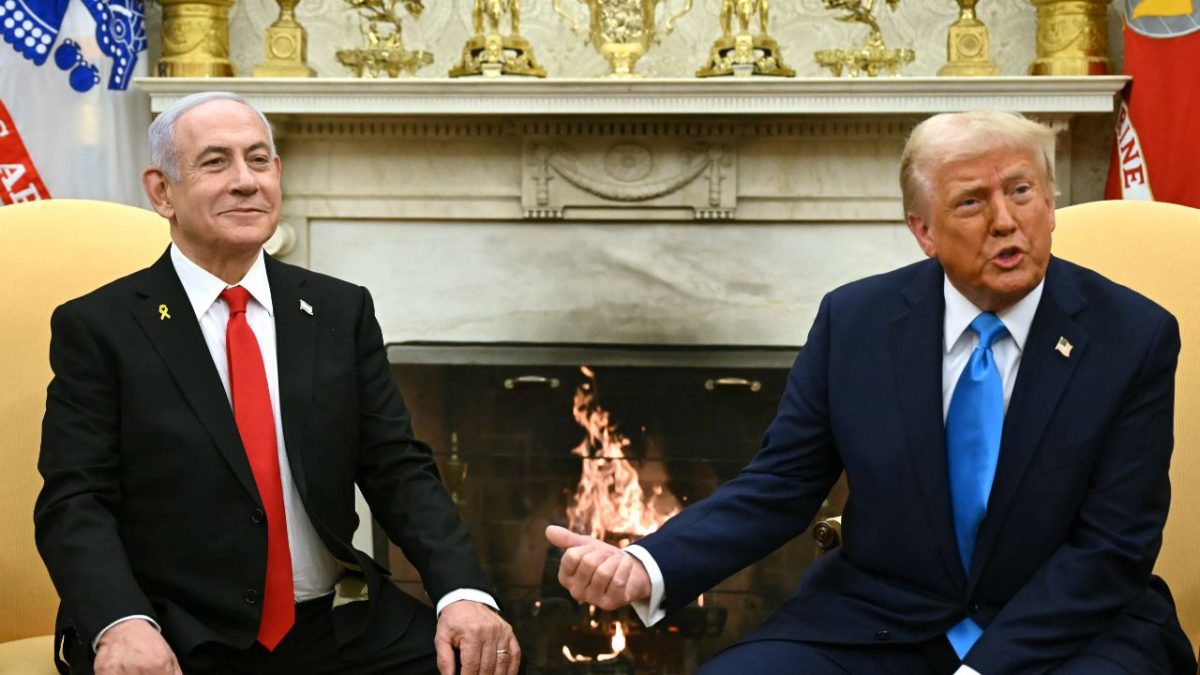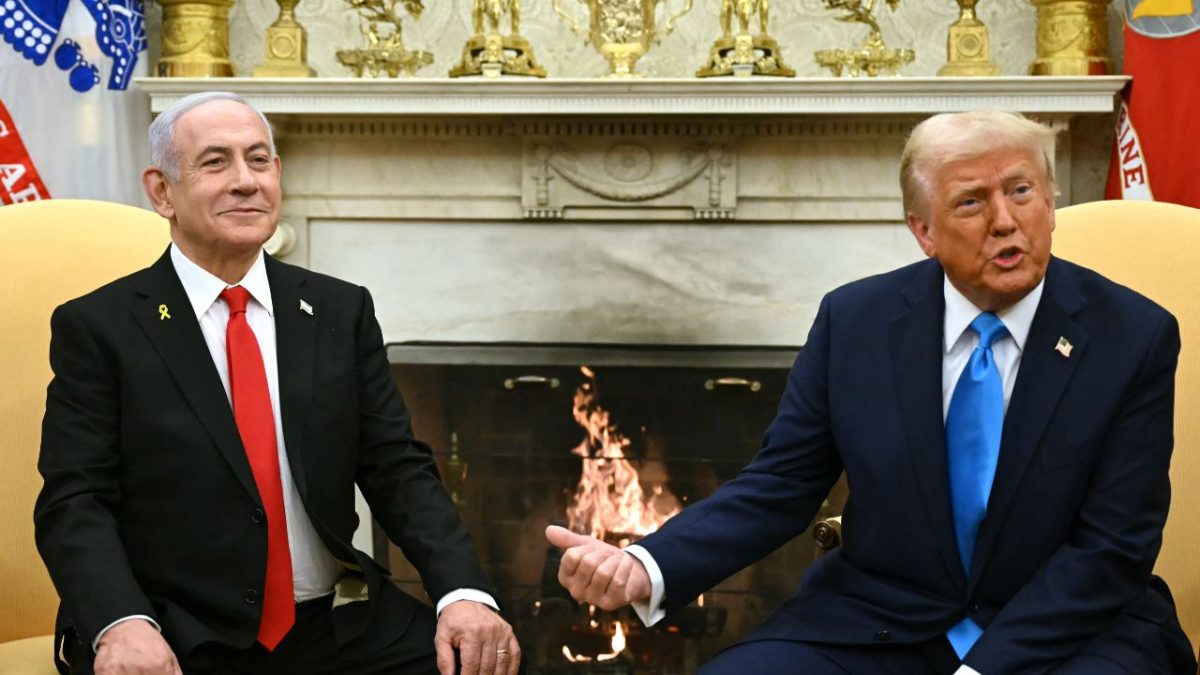Can you be deported from the US for something as small as changing lanes or posting on social media?
Recent events suggest it is possible.
The Donald Trump administration has intensified its actions against international students as part of a wider immigration crackdown.
ALSO READ | How Trump administration mistakenly deported a man to El Salvador prison
In the past, some students had their visas revoked for allegedly taking part in campus activism. Now, US authorities are asking international students, including many from India, to leave the country over relatively minor offences.
This has led to concern and debate around student rights, particularly when it comes to freedom of expression.
In this report, we explore how students are being deported for minor offences, what those affected have to say, and the views of legal experts and university officials.
How the US is deporting international students over minor offences
Over the past few days, many Indian and other international students in the US have received emails from their designated school officials (DSOs). According to a report by The Times of India, these messages informed the students that their F-1 visas were no longer valid and instructed them to leave the country without delay.
The emails reportedly referred to previous criminal charges, ranging from minor traffic violations like “shifting” lanes to offences such as drink-driving and shoplifting, as the reasons behind the visa cancellations.
“ISS [International Student Services] is writing to inform you that your SEVIS record was terminated …”
“The termination of your SEVIS (Student and Exchange Visitor Information System, a legal document which stores data of an immigrant and proves their legal status) record means that you no longer have valid F-1 non-immigrant status.”
“This means you are no longer lawfully allowed to stay in the US. Restated, your Form I-20 is no longer valid. Your EAD (Employment Authorisation Document) is no longer valid, and you no longer have authorisation to work,” the email read, according to TOI.
It further said, “If your visa has been revoked, this means that the F-1 visa in your passport is no longer valid. If you are in the US, you may need to make plans for immediate departure.”
Notably, the SEVIS database, which monitors international students and scholars on F, M and J visas, is maintained by the Department of Homeland Security.
Once a SEVIS record is terminated, the student’s legal status in the US becomes immediately void. They are then required to either leave the country within a standard grace period, usually 15 days, or take formal steps to restore their status. Failing to do so may lead to deportation and difficulties in securing future visas.
ALSO READ | How US immigration authorities tried to hunt down Indian student Ranjani Srinivasan and her escape to Canada
What could be the possible reasons for the deportations?
A majority of the students affected had previously been fingerprinted. While some were only issued citations for non-criminal violations, The Guardian reported that the emails they received described these as criminal records.
A self-reported online document compiled by the impacted students indicates the problem could be more widespread than initially thought.
According to entries, students from fifty different universities noted that their visas had been revoked around April 4, with many acknowledging they had prior records – in some cases limited to warnings or non-criminal citations, the report said.
The emails sent to these students instructed them to self-deport through the CBP Home App. Failure to do so could result in forced deportation and a ban on future visa eligibility.
Although the Department of Homeland Security can enforce deportation for relatively minor offences, such action has been uncommon until now.
Several students said their SEVIS was revoked over issues like drink-driving, changing lanes or over-speeding.
Chand Paravathneni, an immigration lawyer, told TOI that some cases involved relatively minor traffic violations such as running a red light or driving with a learner’s permit without a licensed driver seated beside them.
However, it does not stop there. Many immigration lawyers have pointed out that some students had their visas cancelled for things as minor as sharing a post on social media.
“All these are petty crimes and are usually dismissed after following certain formalities. We have hardly seen anyone’s SEVIS being revoked due to such crimes in the past,” Paravathneni told the publication.
University statements indicate that at least thirty-nine students have been affected, including those from UC Berkeley, UCLA, UC San Diego, Stanford, Ohio State, the University of Tennessee, the University of Kentucky, Minnesota State University and the University of Oregon, The Guardian reported.
Previously, during the Trump administration, students involved in pro-Palestinian activism or speech were specifically targeted, with some well-publicised detentions, including that of Mahmoud Khalil – a green card holder who led protests at Columbia University.
But now, institutions are seeing students lose their visas even if they have no known involvement in any activism.
ALSO READ | Who is Badar Khan Suri, Indian researcher facing deportation in US for ‘Hamas ties’?
How people are reacting to the news
Michelle Mittelstadt, director of public affairs at the Migration Policy Institute, told the Associated Press, “What you’re seeing happening with international students is really a piece of the much greater scrutiny that the Trump administration is bringing to bear on immigrants of all different categories.”
Higher education leaders have also expressed concern that the arrests and visa cancellations could discourage students from pursuing studies in the United States.
Sarah Spreitzer, vice president of government relations at the American Council on Education, told AP that the uncertainty surrounding the revocations is creating anxiety among international students.
In response, universities have said in messages to their students that they are seeking clarification from the federal government on what triggered the visa terminations.
Many have also reminded students to be cautious while travelling, advising them to carry their passports and relevant immigration paperwork at all times.
US Supreme Court allows deportations under 18th-century law
Meanwhile, the US Supreme Court has allowed Trump to continue using a centuries-old law to deport individuals accused of being gang members to Venezuela.
The US president invoked the Alien Enemies Act on 15 March to allow the expedited removal of suspected members of the Tren de Aragua gang, using a law originally associated with the internment of Japanese, Italian and German immigrants during the Second World War.
Although the court sided with the administration, the majority opinion stated that judicial review must still be part of the process.
With inputs from agencies


)
)
)
)
)
)
)
)
)



